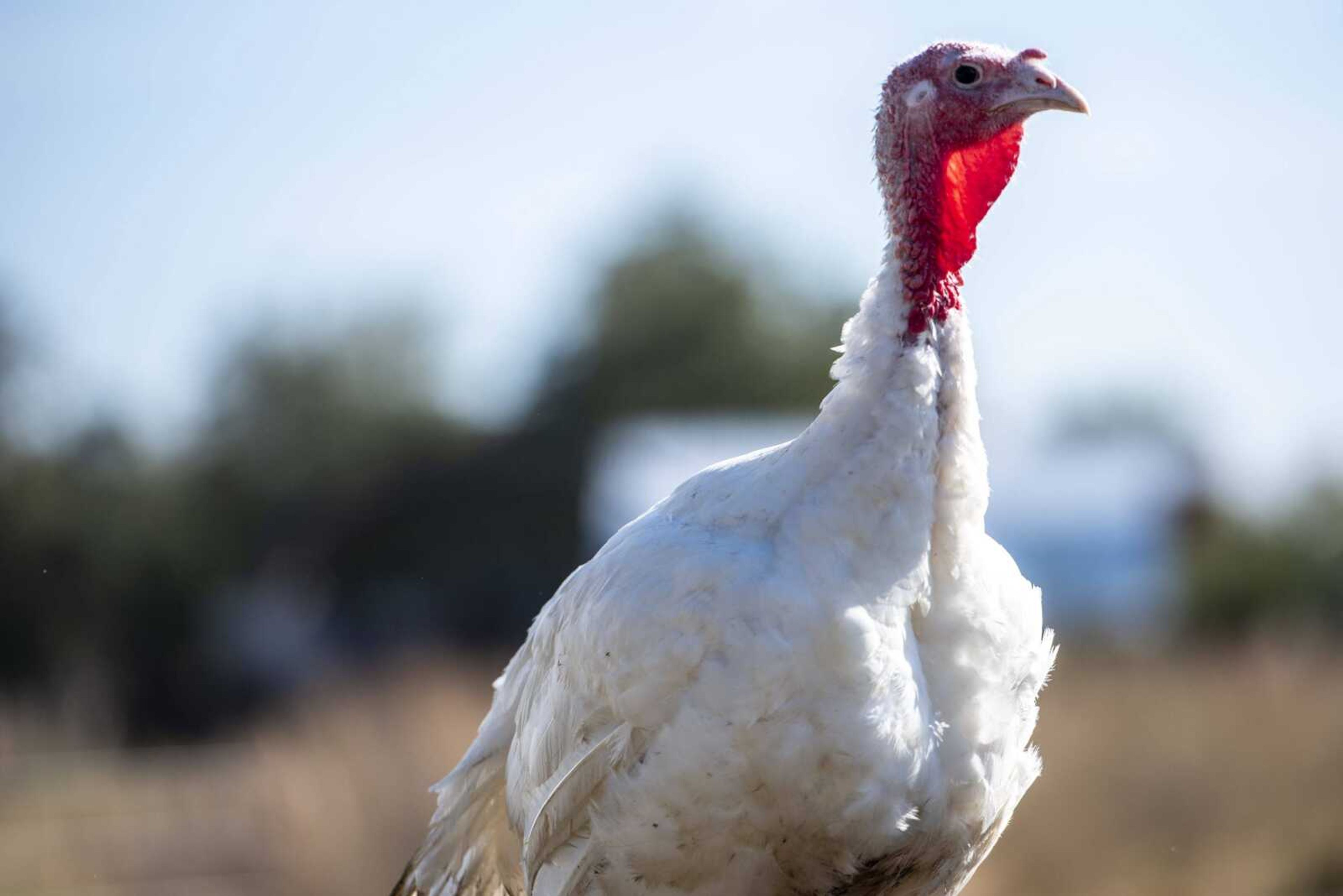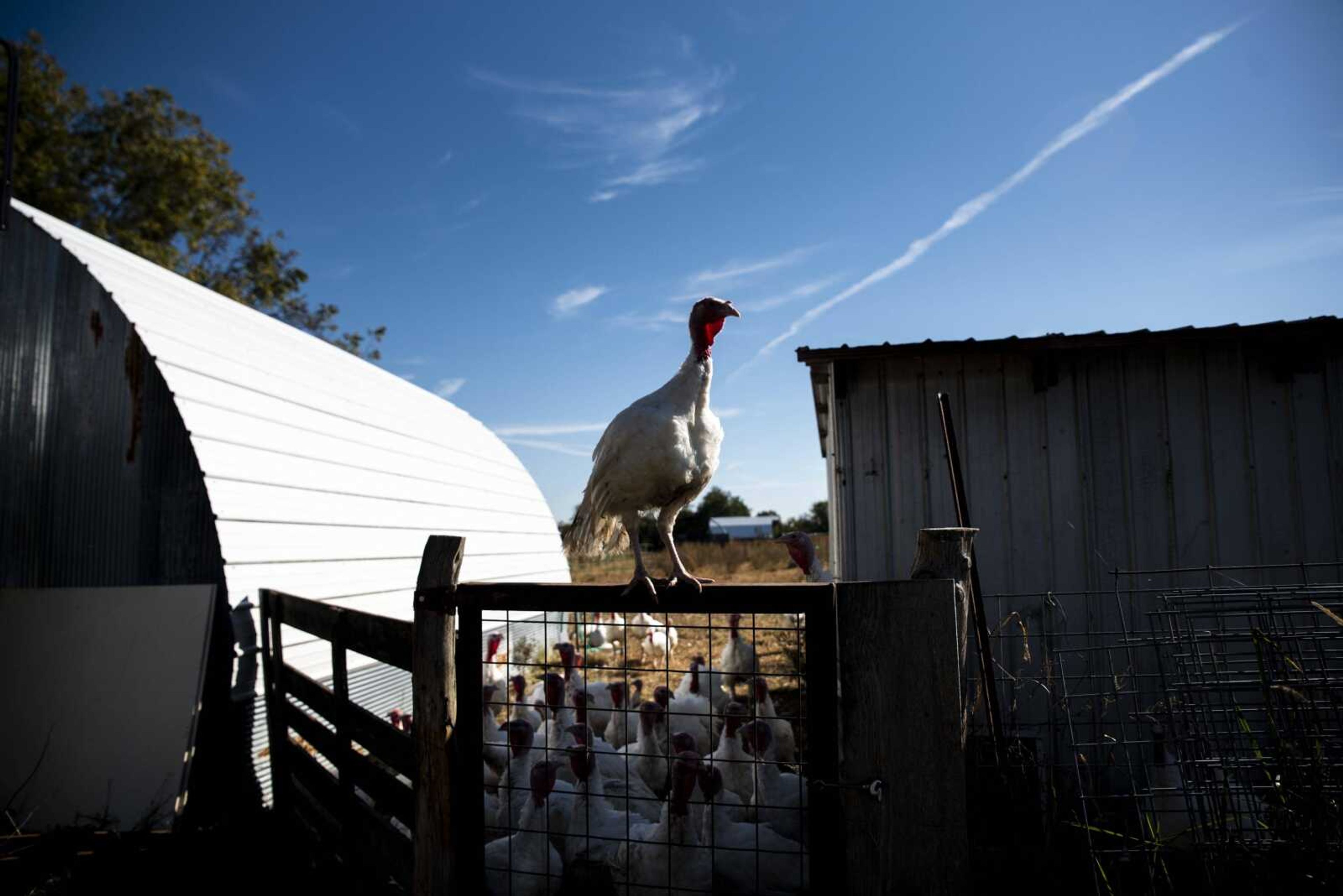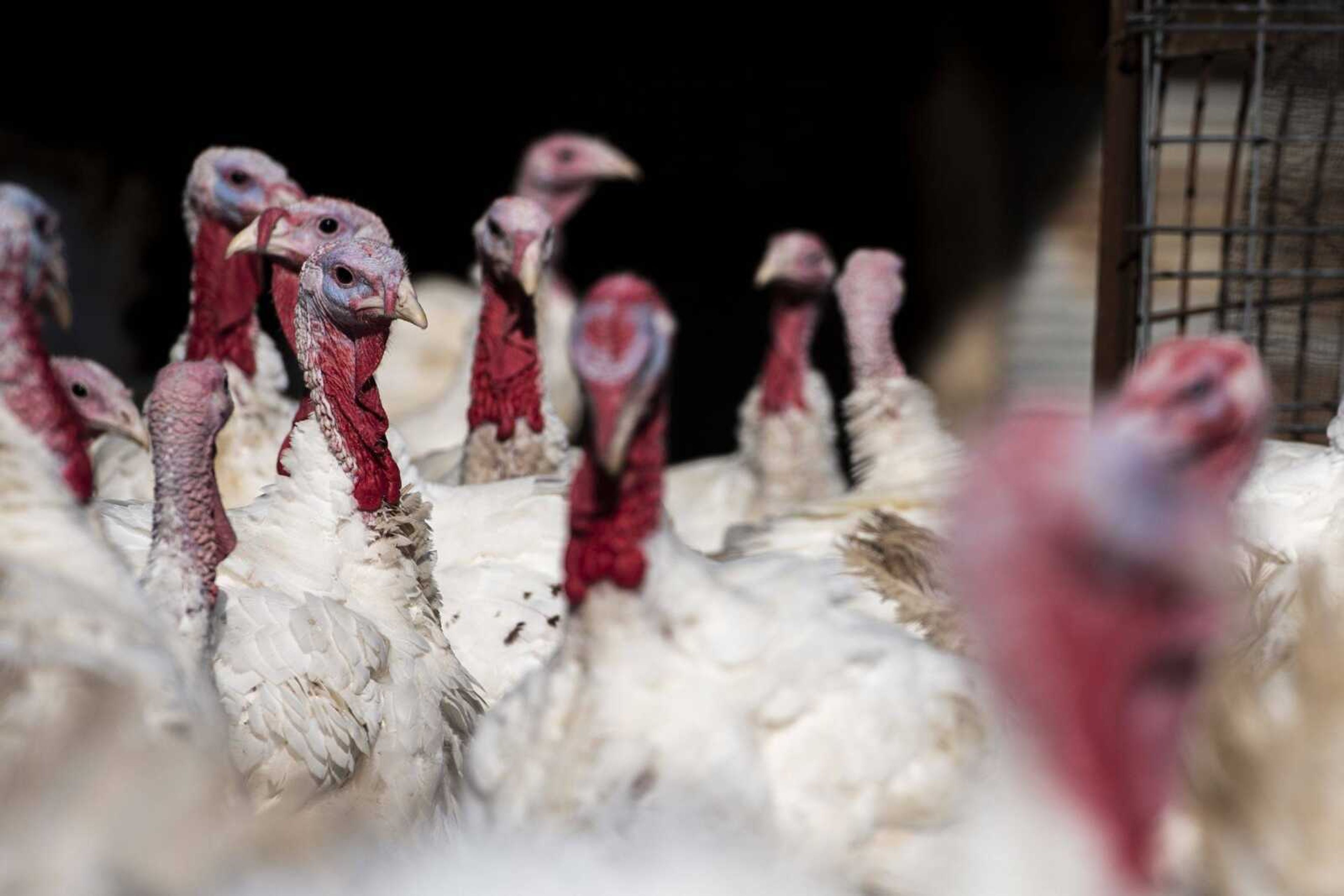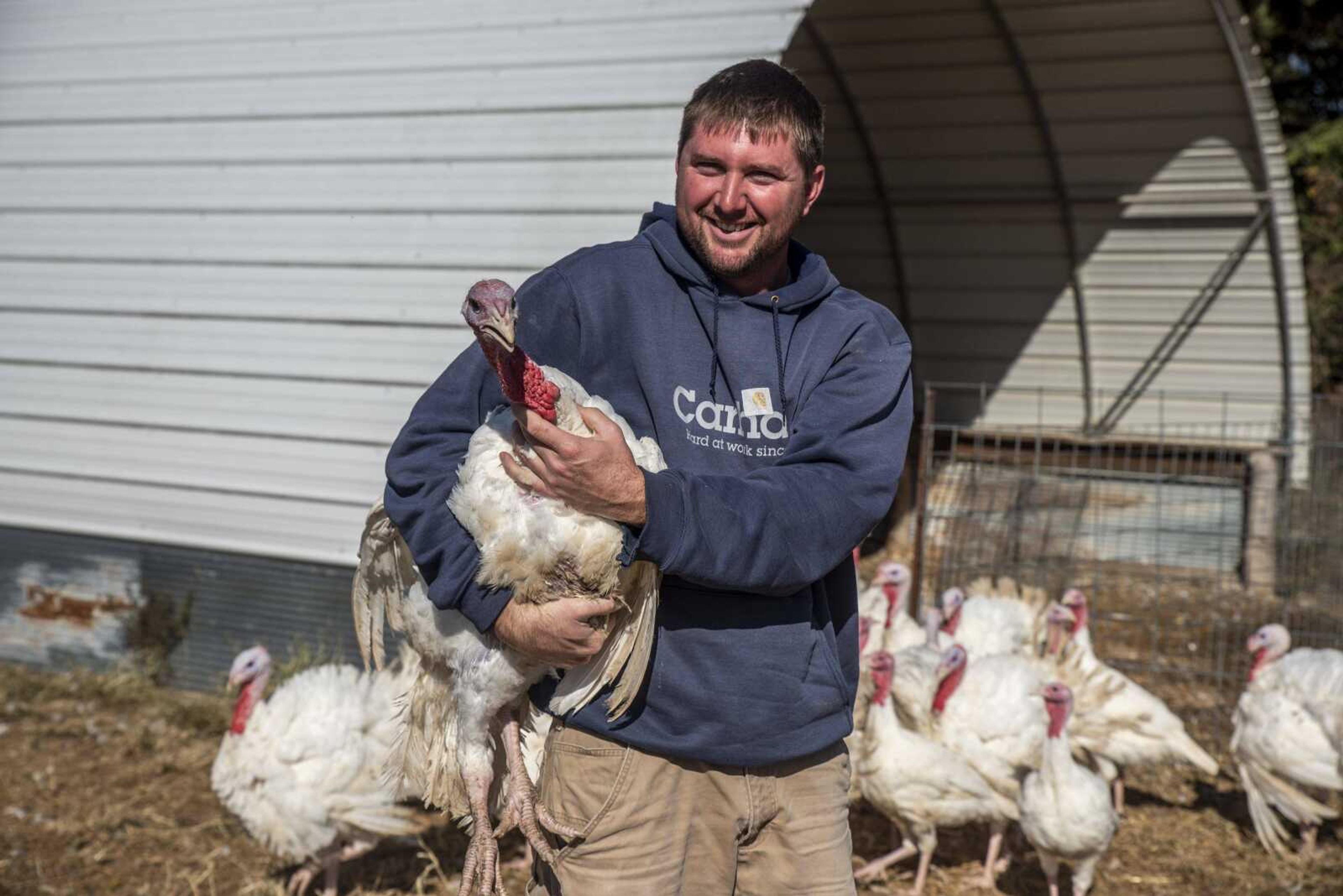Turkey Talking: Colby Jones farms turkeys at Farrar Out Farm in Frohna, Missouri
They coo softly, almost like oversized pigeons, until one lets out an excited "Gobble-obble-auck!" Then, in almost one voice, the rest of the group shouts out the same sounds, then they go back to what they were doing. That's about typical, said Colby Jones, owner of Farrar Out Farm near Frohna, Missouri, unless there's an actual threat...
They coo softly, almost like oversized pigeons, until one lets out an excited "Gobble-obble-auck!" Then, in almost one voice, the rest of the group shouts out the same sounds, then they go back to what they were doing.
That's about typical, said Colby Jones, owner of Farrar Out Farm near Frohna, Missouri, unless there's an actual threat.
But with two big guard dogs nearby, tending the flock of sheep, that's not a usual occurrence, he said.
Jones and his family own and farm land nearby, and he's been in farming most of his life, he said.
Jones himself has been working on Farrar Out Farm since he was 15, and when the previous owner wanted to sell, he stepped up. He's been hard at work ever since.

He's talking about this while surrounded by about 100 white turkeys, roughly half of which are hens and the other half toms. He buys his turkeys as hatchlings in July, they're shipped to him, and he raises them until November.
"I don't have the patience to raise them from eggs," he said, laughing.
The turkeys weigh between 16 and 20 pounds when they're ready for processing, Jones said, which is a good size.
They're pasture raised, in a fenced area where they can roam freely. They have a shelter where the birds can return at night, but he doesn't count on them gathering, he said.
Turkeys aren't that bright, he said.

But he feeds them non-GMO corn from the Co Op Service Center in Jackson, he said.
"I used to raise a heritage breed," but there were problems, he said: the death loss rate was nearly double, they were more expensive to buy, and they'd fly over the fence sometimes, leaving them vulnerable to predators or passing traffic.
So he switched a couple of years ago, he said.
And while Jones already knew the farming side of the operation, he didn't have experience with the sales side: accounts with restaurants and markets, billing, making deliveries.
"It was stressful," he acknolwedged, "but my parents and brothers all helped out."

And working with the turkeys is stressful too, but rewarding, Jones said: "I enjoy knowing that 100 people will get a fresh, organically-grown, non-GMO turkey."
Later this month, for turkey processing, he'll bring in four people to help for twelve hours, "more or less." He'll rent a refrigerated truck and he'll trundle his birds north to St. Louis, where he sells his wares at three separate farmers markets.
There, customers who had put down a deposit to reserve a bird will pick it up, just in time for Thanksgiving dinner.
He has a lot of regular customers, he said, who meet him the Sunday before Thanksgiving to secure the bird.
But for now, the turkeys wander the field, doing what turkeys do.
"It's funny," Jones said. "Sometimes a vulture will fly overhead, and they'll all stop, stand still, with their heads turned, and with one eye, they'll watch."
And, he said, the turkeys will walk the fence separating them from the neighboring sheep, and they'll watch there, too.
"It's definitely interesting," Jones said.
mniederkorn@semissourian.com
(573) 388-3630
Connect with the Southeast Missourian Newsroom:
For corrections to this story or other insights for the editor, click here. To submit a letter to the editor, click here. To learn about the Southeast Missourian’s AI Policy, click here.











